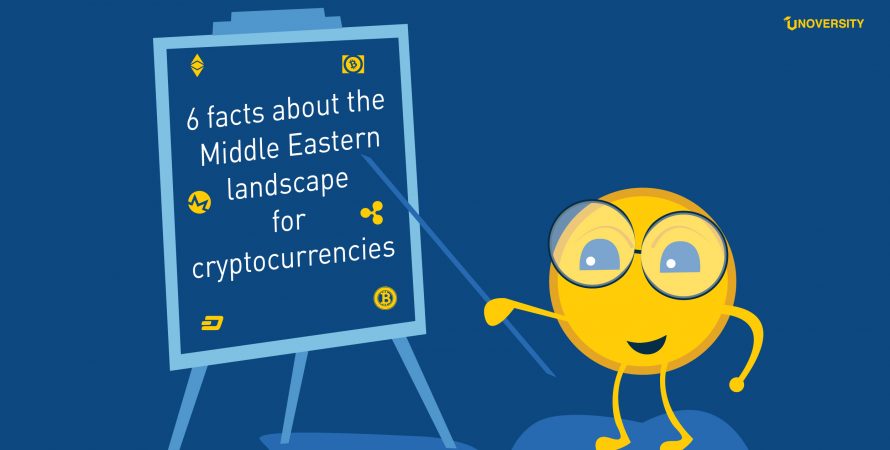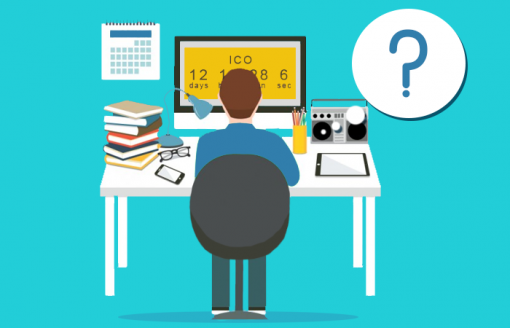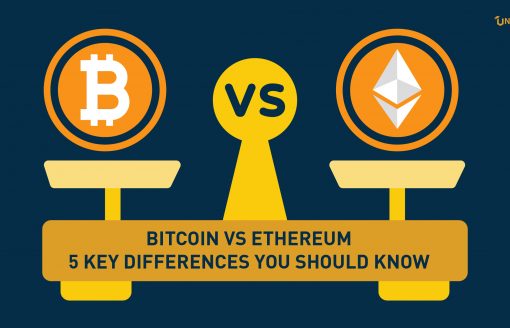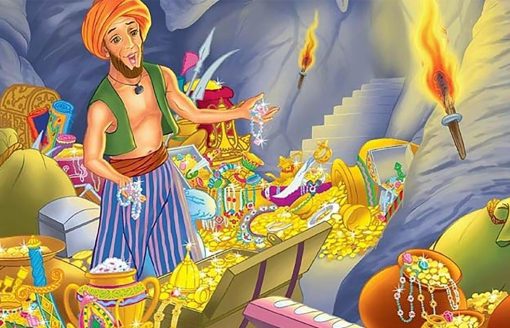Slowly but steadily countries of the Middle East region (Qatar, Saudi Arabia, Jordan, Syria, UAE etc) are embracing virtual currencies. Here are 6 facts that you should know about the middle eastern landscape for cryptocurrencies-
1.The notion of crypto being Anti-Sharia
Many middle eastern banks like the Central Bank of Jordan, Qatar Central Bank, etc. have issued warning against crypto usage. One key reason behind the widespread hostile attitude towards cryptocurrency is the notion that it is against Sharia law. The Islamic faith says that all economic activity should be based on real/ physical assets. Practices including charging interest and market speculation are prohibited. Many fatwas have been issued saying that cryptocurrency trading comes under “haram”.
To counter this situation, a new concept of gold-backed cryptocurrency has evolved. OneGram is one such startup which provides gold-backed crypto. For each unit of value, a physical gram of gold is kept in a safe which reduces the volatility and speculation surrounding digital currencies. “We are trying to prove rules and regulations from Sharia are fully compatible with digital blockchain technology,” says Ibrahim Mohammed, the CEO of OneGram.
2. An enormous 1.8 billion customer market
Muhammad Abu Bakar (Certified Muslim legal expert) wrote a report ‘Is Bitcoin Halal or Haram: A Sharia Analysis’, which says that cryptocurrencies are permissible under Sharia law. He says that since cryptocurrency is valuable by market price and accepted as payment in a wide variety of exchanges, it does not contradict Sharia law. Later that day, Bitcoin’s price spiked by $1,000 in 30 minutes, which was attributed to the Muslim participation because of the report’s verdict. This shows that the Middle East has as a huge potential of developing as a crypto market.
Also Read: 8 Important words about cryptocurrencies in the crypto-tionary
3. Saudi Arabian Monetary Authority (SAMA) and Ripple
Saudi Arabian Monetary Authority (SAMA) became the second central bank to launch a pilot program with Ripple. According to the agreement, Ripple will help banks in the kingdom of Saudi Arabia (KSA) to improve their payment infrastructure. Ripple’s blockchain based “enterprise software solution” named xCurrent will be used for settling cross-border payments more efficiently. xCurrent offers a secure and end-to-end payment flow which provides transparency and reduces payment cost. SAMA also plans on providing training to interested KSA banks.
The Bank of England was the first to use Ripple’s solution for further developing the bank’s Real-time gross settlement system (RTGS) in 2017.
4. World’s first cold storage vault for Cryptocurrency
Regal RA DMCC, a subsidiary of Regal Assets Inc. (a gold investment and trading firm based in Dubai), launched the world’s first cold storage vault for crypto-commodities. The vault is located in Almas Tower, Dubai which is DMCC’s headquarter. The vault will store all the crypto investments of Regal Assets in physical form (without any network connection) alongside the stock of gold. The facility is highly secure for crypto-commodities against theft, hacking or natural disasters. DMCC was named ‘Global Free Zone of the Year’ 2017 by The Financial Times fDi Magazine. “We have developed what we believe is the number one most secure way of investing in bitcoin, ethereum and other crypto-commodities,” says Tyler Gallagher (Chief Executive of Regal Assets).
5. Dubai’s Tourism 2.0 platform
Dubai Department of Tourism and Commerce Marketing (DTCM) launched an innovative, blockchain enabled platform called Tourism 2.0 in April 2018. The project was proposed for Dubai 10X at the 6th World Government Summit. The platform aims to directly connect potential buyers and hotels/tour operators. It is a consumer-friendly, B2B (business to business) marketplace. This is a part of Dubai’s Tourism Vision 2020 which aims to welcome 20 million visitors per year by 2020.
6. NoorCoin
Since the opinions of Muslim scholars differ on whether virtual currency is Sharia compliant or not, the community stands in confusion. To resolve this situation, many new coins have been developed which are Sharia-compliant for example, NoorCoin.
NoorCoin was certified by the Shariah Advisory Committee. It is the world’s first Sharia-compliant utility token. It follows Islamic finance practices like no interest rates, shared profit and loss, and minimal economic speculation. “Trust is a key factor to make this work. Using blockchain technology means that anyone can be confident that the token they hold is valid and has its utility. They will find NOORCOIN as a very useful utility token for transactions among them and to fulfil their religious and civic duties such as zakat and tax payment. “ says Noor Coin’s COO, Thomas Yudhistira.






The Future of fundraising might just be an ICO